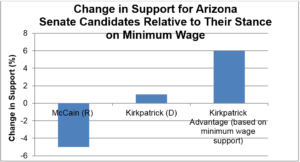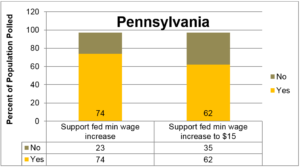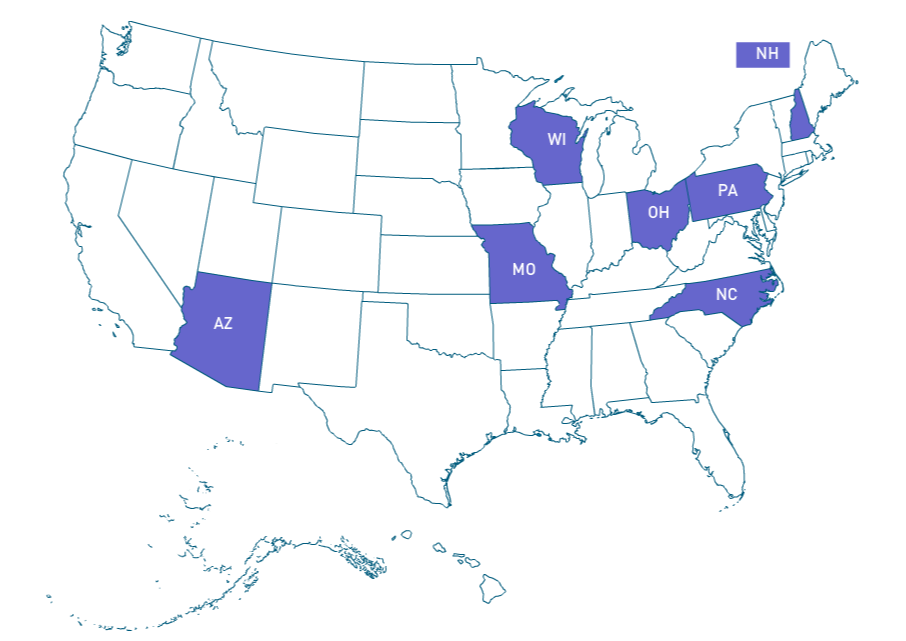by Mitchell Hirsch | Sep 2, 2016 | Op-Ed
by Judy Conti, NELP Action
New Obama Administration regulations that ensure workers with salaries less than $47,476 a year are paid for overtime hours take effect Dec. 1, 2016. The Department of Labor estimates changes to the so-called “white-collar exemption” will entitle 4.2 million executive, professional and administrative employees to overtime when they work more than 40 hours in a week. The Economic Policy Institute estimates an additional 8 million workers, who are likely presently entitled to overtime but not receiving it, will finally start getting the pay they deserve.
Across the country, more than 12 million workers will either see more money in their paychecks or more free time for themselves and their families as employers spread work around. Where employers reassign work hours rather than pay time-and-a-half for overtime, part-time workers who want more hours will likely get them, and those who are unemployed will be able to apply for the new jobs that will be created by the redistribution of work.
This is good news for workers everywhere, and a boon for the middle class, which has eroded considerably in recent decades. For employers, it will amount to no more than one-tenth of 1 percent of payrolls in industries across the country. With costs to employers so small but the benefits for working families so great, why would any rational policymaker oppose these overtime changes?
Yet, that’s precisely what’s happening, with Congressional Republicans leading the charge to try to kill the regulation. A new poll shows they could pay a political price for their opposition.
The NELP Action Fund recently asked likely voters in seven battleground Senate states (Arizona, Missouri, New Hampshire, North Carolina, Ohio, Pennsylvania, and Wisconsin) how they feel about the new overtime rules, and the results are staggering. With percentages ranging from 76-81%, voters in these states favor the new regulations. And these likely voters are prepared to vote to benefit their pocketbooks: By margins of well over 2-to-1, voters are less likely to vote for candidates who oppose the new overtime regulations. The results aren’t even close.
With such overwhelming public support for the new rules, why are Congressional Republicans trying to block these long-overdue regulations? Because employers have been getting a good deal under the current weak regulations, which allow them to get away with denying overtime pay to workers with salaries as low as $23,660 per year, a wage that falls below the poverty level for a family of four. CEOs and their cronies, such as the U.S. Chamber of Commerce, don’t want to see a good thing go away.
Forty-four Senate Republicans, including John McCain of Arizona and Ron Johnson of Wisconsin are co-sponsoring a resolution that would block these regulations in their entirety AND would ban the Department of Labor from trying to update the regulations at all. (House Republicans have also offered riders to the Department of Labor’s Appropriations bill that would block the new regulation.)
Sens. Rob Portman (R-Ohio), Pat Toomey (R-Pa.), Roy Blunt (R-Mo.), Kelly Ayotte (R-N.H.) and Richard Burr (R-N.C.), all of whom are up for re-election this year, have not signed onto this resolution, but neither have they offered any indication that they will support the new overtime regulations.
It is time for them to take a stand and buck the Republican party-line on the overtime regulations. Are these Senators on the side of the overwhelming majority of their constituents, who know that restoring vitality to the nation’s overtime law is of significant importance not only to their families, but also for building an economy that works for everyone? Or will these senators stand with the interests of big business, which wants the free ride to continue?
On a matter so crucial to middle class security and stability – to family incomes and family time – there’s no excuse for politicians of any ilk to duck the question of where they stand on overtime pay. Voters across America strongly support the new rules and deserve to know which side their leaders are on. It’s time officials and all others who haven’t yet taken a stance on the overtime regulations answer the question.
Judy Conti is Federal Advocacy Coordinator at the NELP Action Fund. This column was originally published on The Hill’s Congress Blog.
by Mitchell Hirsch | Sep 1, 2016 | New Releases
For Release: Thursday, September 1, 2016
Media Contact: Rob Duffey, [email protected], 646.463.3267
New BATTLEGROUND POLL: Control of Senate Could Hinge on Candidates’ positions on Minimum Wage
Voters in 7 states Overwhelmingly support raising minimum wage – and incumbents who oppose it pay a big penalty
Washington, DC – New polling shows voters in key swing states overwhelmingly support increasing the federal minimum wage and that candidates’ positions on raising pay could play a pivotal role in this year’s fight for control of the U.S. Senate. The results show incumbent Republican U.S. senators locked in close races could lose critical support – and even their seats – over opposition to raising wages for working people.
The polls were conducted Friday through Monday by Public Policy Polling in seven states with competitive Senate races – Arizona, Missouri, New Hampshire, North Carolina, Ohio, Pennsylvania, and Wisconsin. In each of the seven states, voters are less likely to support their incumbent Republican senators when informed of their votes against raising the federal minimum wage above $7.25 per hour.
In Pennsylvania, Wisconsin and New Hampshire, Democratic challengers strengthen their lead when voters were made aware of the Republican senator’s voting record on the minimum wage. And in Arizona, Missouri and North Carolina Democratic challengers actually pull ahead, flipping the contests on their heads.
“The findings of the polls are clear: swing state voters in this election are looking for candidates who will stand with them in supporting a strong minimum wage increase. Elected officials who oppose raising the minimum wage do so at their political peril,” said Christine Owens, executive director of the National Employment Law Project Action Fund.
In each state, at least 67% of voters support raising the federal minimum wage above its current level of $7.25 per hour, including 74% of voters in Pennsylvania and 72% of voters in North Carolina. At least 57% of voters back an increase to $15 per hour, including 63% in both Wisconsin and New Hampshire.

“Voters are fed up with lack of action in Washington on raising wages for working people, and what we’re seeing is that just letting voters know where the candidates stand on these issues can have a significant impact,” said Dan Cantor, executive director of Working Families.
The poll was commissioned by the NELP Action Fund, which that conducts research and advocates on issues that affect low-wage and unemployed workers. NELP Action, which is a project of The Advocacy Fund, is partnering with the Center for Popular Democracy Action Fund, Working Families and dozens of grassroots groups in the seven states on a campaign to mobilize voters around the minimum wage in the 2016 election. As reported in the Wall Street Journal, the coalition plans to engage in canvassing, hold candidate forums, and wage debate protests, among other actions, to energize voters around candidates’ positions on the raising the minimum wage.
Over the past three and a half years, more than 50 states, cities and counties have passed minimum wage increases via legislation or ballot initiative. Nearly 20 million workers have seen wage increases, and 10 million of those workers are on the path to a $15 wage. But the federal minimum wage remains at just $7.25 due to gridlock and obstructionism in Washington. More than 10 million workers across the seven states polled are paid less than $15 per hour, including more than 7 million who are paid less than $12 per hour. Low wages force taxpayers in these states to pick up $25 billion per year in public assistance to working families, according to the UC Berkley Center for Labor Research and Education.
“Voters deserve elected leaders who share their values and will stand with them on bedrock issues like good jobs and fair wages,” said JoEllen Chernow, Director of Economic Justice at the Center for Popular Democracy Action Fund. “Over the next two months we’ll be letting voters know where the candidates are on giving America the raise it needs.”

The PPP poll is the latest in a body of research that shows growing support for raising wages in America. In January 2015, Hart Research Associates found that 75% of Americans support increasing the federal minimum wage to $12.50, while 63% of Americans support raising the wage to $15. A poll of underpaid workers by Harris Interactive and Yougov last year showed among registered voters paid less than $15, 65% are more likely to vote in the upcoming election if a candidate supports $15 and a union for all workers.
READ THE POLLS.
by Mitchell Hirsch | Sep 1, 2016 | New Releases
For Release: Thursday, September 1, 2016
Media Contact: Rob Duffey, [email protected], 646.828.0844
NEW BATTLEGROUND POLL: OBAMA ADMINISTRATION OVERTIME RULE OVERWHELMINGLY POPULAR AND REPUBLICANS WHO OPPOSE IT PAY A PENALTY
VOTERS IN 7 STATES SUPPORT OT REGULATION FOR SALARIED WORKERS; LESS LIKELY TO VOTE FOR REPUBLICANS WHO OPPOSE IT
Washington, DC – A new poll shows that likely voters in 7 battleground states strongly support the Obama Administration rule expanding overtime pay, and that Republican incumbents who are trying to block the measure risk losing crucial support among voters. In May, the U.S. Department of Labor announced a final overtime pay rule that expands and enhances eligibility for overtime for 12.5 million low-income and middle-class workers by raising the income threshold for full-time workers to $47,476 from $23,660. But Congressional Republicans are leading a charge to block the regulations.
Forty-four Senate Republicans, including John McCain (R-AZ) and Ron Johnson (R-WI,) are co-sponsoring a resolution that would block these regulations in their entirety and ban the DOL from trying to update the regulations at all. House Republicans have also offered riders to the DOL’s appropriations bill that would block the overtime rule.
“Americans are working more and more hours for less and less money – they need leaders who will fight for improved working conditions and expanded worker protections,” said Christine Owens, executive director of the National Employment Law Project (NELP) Action Fund, a project of the Advocacy Fund and the nonpartisan not-for-profit organization that commissioned the poll. “This poll clearly shows that incumbents who carry water for big businesses and attempt to deny working people their basic rights stand to lose crucial support at the polls.”
The poll, conducted Friday through Monday by Public Policy Polling, asked voters in seven states with competitive Senate races, including Arizona, Missouri, New Hampshire, North Carolina, Pennsylvania, and Wisconsin whether they support the overtime measure. In each state, at least 76% of voters said they support the rule, which raises the salary threshold for the so-called “white-collar exemption” to guarantee that employees who are paid less than $47,476 a year will be entitled to overtime pay when they work more than 40 hours in a week. In Wisconsin and Pennsylvania, support for the rule was as high as 81%. A majority of respondents in all seven states, and by a more than two-to-one margin in all seven states, said that they were less likely to vote for Republican lawmakers who are attempting to block the new overtime rule, including 57% of voters in Pennsylvania and 55% of voters in Arizona.
The Fair Labor Standards Act of 1938, which guarantees time-and-a-half pay for work exceeding 40 hours a week, exempts certain employees with high-level duties and salaries from overtime pay. But the Department of Labor, which is responsible for updating the exemption rules, had over a nearly 40-year period consistently failed to adequately update the thresholds. As a result, the current threshold falls below the poverty line for a family of four. Nearly two million workers across the seven states would gain eligibility for overtime under the new rule if it goes into effect on Dec. 1, 2016.
READ THE POLLS.
by Mitchell Hirsch | Aug 29, 2016 | Blog
by Mitchell Hirsch, NELP Action Fund
A coalition of progressive advocacy groups has launched a campaign to make boosting workers’ pay a pivotal issue in the 2016 elections. Looking to leverage strong public support for minimum wage increases, the effort will spotlight candidates’ positions on substantially raising the federal minimum wage and protecting a major expansion of overtime pay coverage.
With control of the U.S. Senate in the balance this election year, the groups are targeting Senate contests in at least seven battleground states where Republicans who have blocked minimum wage increases, and whose party leaders in the Senate threaten to roll back overtime pay guarantees for millions of workers, are seeking reelection.
Led by the National Employment Law Project Action Fund, the Center for Popular Democracy Action Fund, and the Working Families Organization, the campaign intends to make raising wages a decisive issue in several key Senate races, working with grassroots groups in Wisconsin, Pennsylvania, Ohio, North Carolina, Missouri, Arizona, and New Hampshire.

7 battleground states where coalition of progressive advocacy groups are challenging incumbent Republican Senators on issues of raising workers’ pay.
The effort received national attention over the weekend with a report in the Wall Street Journal.
“There’s unprecedented momentum this year for raising the minimum wage. Voters are hungry for leaders who’ll take a strong stand in raising wages and frustrated with their Republican majorities in Congress,” said Paul Sonn, a spokesperson for the National Employment Law Project Action Fund.
While the focus is on Senate races, “partners in this effort are educating voters on where candidates for office from president down to city councilperson stand on raising wages,” said Mr. Sonn, who added that Hillary Clinton is a strong supporter of raising the federal minimum wage while Donald Trump “has been all over the map.”
With control of the Senate hanging in the balance after Republicans won the majority in 2014, the groups are betting minimum wage could be a pivotal issue in key races in Pennsylvania, Missouri, Wisconsin, Ohio, Arizona, New Hampshire, and North Carolina.
. . . .
Republicans are defending 24 Senate seats this November, while Democrats are defending 10. Democrats need to win at least five net seats to gain back control from Republicans, or four if Hillary Clinton wins the White House and Tim Kaine is elected vice president and can break tied Senate votes.
Some of the lawmakers the groups plan to target because of the lack of support they’ve shown for higher minimum wages are Arizona Republican Sen. John McCain, who is in a contest against Democratic Rep. Ann Kirkpatrick, and Missouri Republican Sen. Roy Blunt, challenged by Democrat Jason Kander.
In Pennsylvania, GOP Sen. Pat Toomey could feel some heat from the groups in his race against Democrat Katie McGinty, who has repeatedly called for raising the federal minimum wage. And in Wisconsin, they will target Republican Sen. Ron Johnson in his contest with Democrat Russ Feingold, who has made raising the minimum wage a pivotal part of his campaign.
Marina Dimitrijevic, the state director of the Wisconsin Working Families Party, one of the grassroots groups involved, said the organization plans to bring a crowd to a mid-October debate between Sen. Johnson and Mr. Feingold. It will also invite Mr. Johnson to a roundtable discussion about raising minimum wages.
“I hope he comes and listens,” she said.
The federal minimum wage is $7.25 an hour, and leading Democrats in Congress have gained no traction on bills to increase it. Pay floors have been rising in cities and states instead to as high as $15 an hour.
Of the 24 Republican-held Senate seats that are up in the 2016 election, 22 of them are held by incumbents seeking reelection. They include all seven of the Republican incumbents in races targeted by groups pressing for a higher federal wage floor. All seven of those incumbent senators voted to block a federal minimum wage increase from $7.25 to $10.10 in 2014, and have stood by Senate Republican leaders’ refusal to consider any legislation to raise the federal wage floor ever since.
Sixteen Republican-held Senate seats up in this election are in states that are among the 21 states stuck at the $7.25 federal minimum wage, including fourteen where Republican incumbents are running for reelection. Another seven states with only slightly higher state minimum wages have Republican incumbents seeking reelection.
In the 24 states with Republican-held Senate seats up in this election, 27 million workers are paid less than $15 per hour, including nearly 20 million who are paid less than $12 an hour. In the seven states targeted for the workers’ wages issue focus, more than 10 million workers earn less than $15 per hour, including more than 7 million who are paid less than $12 an hour.
The seven states selected by the groups for the campaign’s election cycle focus are among those considered the most competitive Senate races. Their outcomes will likely decide who holds the Senate majority in the next Congress.
Arizona: Sen. John McCain (R) vs. Ann Kirkpatrick (D)
Missouri: Sen. Roy Blunt (R) vs. Jason Kander (D)
New Hampshire: Sen. Kelly Ayotte (R) vs. Maggie Hassan (D)
North Carolina: Sen. Richard Burr (R) vs. Deborah Ross (D)
Ohio: Sen. Rob Portman (R) vs. Ted Strickland (D)
Pennsylvania: Sen. Pat Toomey (R) vs. Katie McGinty (D)
Wisconsin: Sen. Ron Johnson (R) vs. Russ Feingold (D)
As Labor Day approaches, marking the start in earnest of campaign season, the groups plan to drive a media narrative on the potentially game-changing impact of raising workers’ pay as a pivotal election issue.




